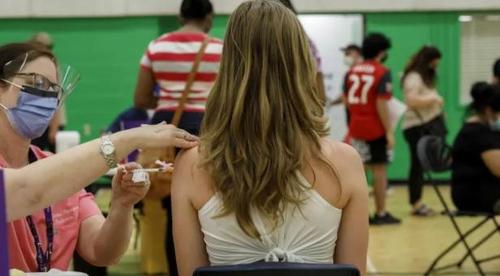Source: Zero Hedge
European health authorities have more or less confirmed that adenovirus-vector vaccines produced by AstraZeneca and J&J can, in rare instances, cause potentially deadly cerebral brain clots in patients with low blood-platelet counts. These findings, which were hinted at during the late-stage trials for the AstraZeneca vaccine (which saw its US trials halted for a month over safety issues) have led to some European governments imposing restrictions on the vaccines.
Fortunately for the US, there hasn’t been any evidence of potentially serious (and rare) side effects – until a few weeks ago, when it was first reported that the CDC was scrambling to hold an emergency meeting to discuss a problem.
As the number of cases of heart inflammation popping up in the VAERS database of complaints of potential vaccine-related complications, the agency was being forced to look into it.
YOU STUPID, STUPID STUPIDS.
This was so predictable. pic.twitter.com/oHKFgR9vF4
— Alex Berenson (@AlexBerenson) June 10, 2021
Now that the internal probe has been conducted, the agency has begrudgingly confirmed that young male patients might be at heightened risk of heart inflammation that, while not deadly, could still cause serious problems that require treatment.
The FT reports that the CDC has found a “likely association” between a handful of cases of heart inflammation and the mRNA COVID-19 vaccines. The reactions were documented in adolescent patients, which might explain the delay in detection since teenagers have only just become eligible.
There were 323 confirmed cases among people who received the vaccine of certain types of heart inflammation in the US up to June 11, with 309 people requiring hospital treatment. Nearly 80% of the people with confirmed cases have fully recovered, according to the CDC’s Vaccine Safety Technical Work Group.
The cases have prompted the agency to start monitoring for new instances of myocarditis and pericarditis, two different types of heart inflammation, to see if any new cases or potential links emerge. The demographic group that’s most vulnerable so far appears to be men under the age of 30 (by contrast, the rare side effect for the AstraZeneca jabs mostly impacted young women). Right now, the cases of heart inflammation have occurred at a rate of 4.4 per million vaccine doses after the first dose, then rising to 12.6 per million after the second dose, which is still exceedingly rare.
If an adolescent patient experiences heart inflammation after their first dose, the CDC recommends deferring the second dose.
“This is an extremely rare side-effect, and only an exceedingly small number of people will experience it after vaccination,” doctors from the US health department, CDC and others said in a statement following the meeting. “Most cases are mild, and individuals recover often on their own or with minimal treatment. In addition, we know that myocarditis and pericarditis are much more common if you get Covid-19, and the risks to the heart from Covid-19 infection can be more severe,” they added.
In the US and Israel, high vaccination rates have prompted authorities to start vaccinating younger and younger patients, with Israel now vaccinating patients as young as 12. Anyone who objects is quickly reminded of the threat of “variants” like the mutant strain “Delta”. Meanwhile, the developing world is still woefully undersupplied, leaving even the most vulnerable patients without access.


